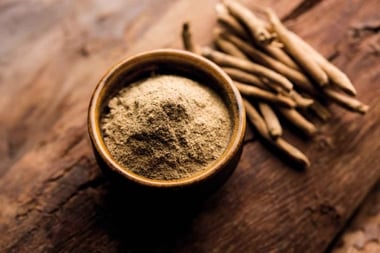Aquatic Bodywork

Weightlessness. Warmth. And some waltzing. These elements, and the sense of tranquility they gave me, shaped my introductory experience of Watsu, a type of aquatic bodywork. Watsu is an acronym for water therapy and Shiatsu massage, and the practice began as a hybrid of these two healing modalities.
Weightlessness. Warmth. And some waltzing. These elements, and the sense of tranquility they gave me, shaped my introductory experience of Watsu, a type of aquatic bodywork. Watsu is an acronym for water therapy and Shiatsu massage, and the practice began as a hybrid of these two healing modalities.
Developed by massage practitioner Harold Dull in California in 1980, there are now thousands of Watsu practitioners in more than 20 countries around the world. An estimated 100 practitioners work in Canada. Marianne Hansen, a certified Watsu practitioner and one of Canada’s few teacher trainers, tells me their biggest challenge is a shortage of warm-water pools.
Why Get Wet?
Watsu is practised in a pool heated to 34 C (93 F), just a few degrees below body temperature. As in massage therapy, it entails a one-on-one experience between practitioner and client. Rather than lying on a table, however, the client floats in the water.
The practitioner guides the client through a sequence of alternating gentle stretches, moments of stillness, and often playful movements, symmetrically applied–right side, left side–and massage techniques. The basic sequence can be varied and individualized, leaving room for improvisation as the practitioner senses the energy flow and muscle tension in the client’s body.
Communication during this healing dance is nonvisual (the client’s eyes are closed) and, for the most part, nonverbal, as the client’s ears are often under the water. During the session, the practitioner may hold the client closely in his or her arms, or let the client float with only the slightest finger touch connecting them.
The client must yield to a sense of trust, a nurturing, nonsexual intimacy and connection–not something we experience regularly in our stress-filled lives. “The extent to which you’re able to let go,” explains Hanson, “you get back, exponentially, in healing.”
Healing Waters
The silence and nurturing, warm water, and escape from gravity, combined with stretching and massage, promote a sense of deep relaxation that, in turn, is known to be beneficial to the immune system.
From the perspective of traditional Chinese medicine, Watsu “promotes the flow of chi through the body; helps with the removal of blockages that prevent energy flow; and brings the body, mind, and spirit back into balance,” says Hanson.
At the physical level, it is used to treat not only stress and sore backs but also chronic pain conditions such as fibromyalgia, orthopedic problems, Parkinson’s disease, and arthritis.
Watsu combines and expands on the known health benefits of water and massage therapies. Anecdotal evidence from practitioners (there are few published studies) suggests that Watsu demonstrably improves mobility in the spine and limbs and decreases joint compression and edema. The lymph and sympathetic nervous systems also appear to benefit from time spent relaxing in the warm waters.
Hanson tells me about a client at a residential care facility for 150 seniors and younger adults with disabilities. She was an older woman who came to the centre depressed and confined to her wheelchair. Her muscles were “stiff as a board,” but after a few months of regular Watsu sessions, she began to relax. Now she can stand and walk in the water and perform daily activities such as dressing and brushing her teeth. Her increased mobility and independence has resulted in a noticeably more positive state of mind.
“Even if I can’t give them something physical,” says Hanson, “the treatment gives them joy and emotional pleasure. It’s a trip away from here [the] for a few hours–that’s the biggest gift I can give them.”




